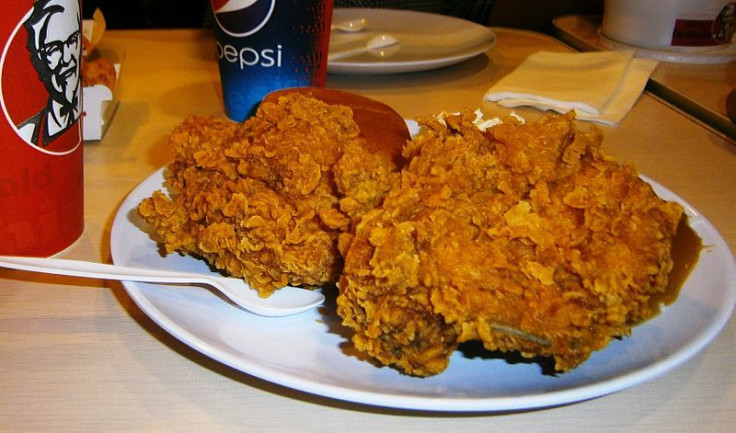Sadness Can Hide The Taste Of Fat, Making You Feel Worse About Stress Eating

We all take refuge in comfort foods — those tasty treats that we know aren't good for us, but we eat anyway. And there may be a biological reason why people stress eat without even realizing it.
A recent study shows evidence that strong emotions, like those we experience after a breakup or a bad test grade, can block our perception of the amount of fat we are eating, and even the taste.
Participants in the study also showed a very different perception when it came to other foods. After watching emotional videos that contained both happy and sad stories, study members had a higher sensitivity to bitter, sour, and sweet tastes. The approximate increase in sensitivity to these tastes was rated at about 15 percent.
But, interestingly, the participants had a decreased taste sensitivity to fat. This follows other lines of research that indicate that those with depression or who are overweight may not be able to taste fat and perceive how much they are eating.
The study examined the reactions of 48 women and 32 men between the ages of 19 and 47 in Wurzburg, Germany. The tastes the participants were exposed to were sweet (sucrose), sour (citric acid), bitter (quinine, as found in tonic water), umami (glutamate monopotassium salt, similar to MSG), and fatty (milk cream) at five different concentrations. All tastes were diluted in water by a pharmacist, except the fat mixture.
The scale used to evaluate how the participants evaluated the taste of the substances ranged from 0 (barely detectable) to 100 (strongest imaginable). The volunteers were pre-screened so that they were all feeling a little sad or blue, as evaluated by the Beck Depression Inventory exam.
Three types of clips were watched: The first was a boring workplace instructional video. The second was a sad clip of a son mourning the death of his father. And the third was a happy video of a man bringing flowers to a woman.
After watching both the happy and sad videos, but not the boring video, participants were not able to easily distinguish the different concentrations of the fatty drink. For all of the other tastes, the volunteers had a heightened sense of taste after watching the emotional videos, but yet again, not for the boring video.
"We believe that our data on sweet, sour and bitter tastes support prior observations of a relationship between subclinical depression and anxiety and taste thresholds...Whereas a decrease in the ability of slightly subclinically depressed subjects to rate fat concentrations accurately when in negative or positive mood has not previously been reported," the researchers concluded.
Source: Platte P, Herbert C, Pauli P, Breslin P. Oral Perceptions of Fat and Taste Stimuli Are Modulated by Affect and Mood Induction. PLoS ONE. 2013.
Published by Medicaldaily.com



























